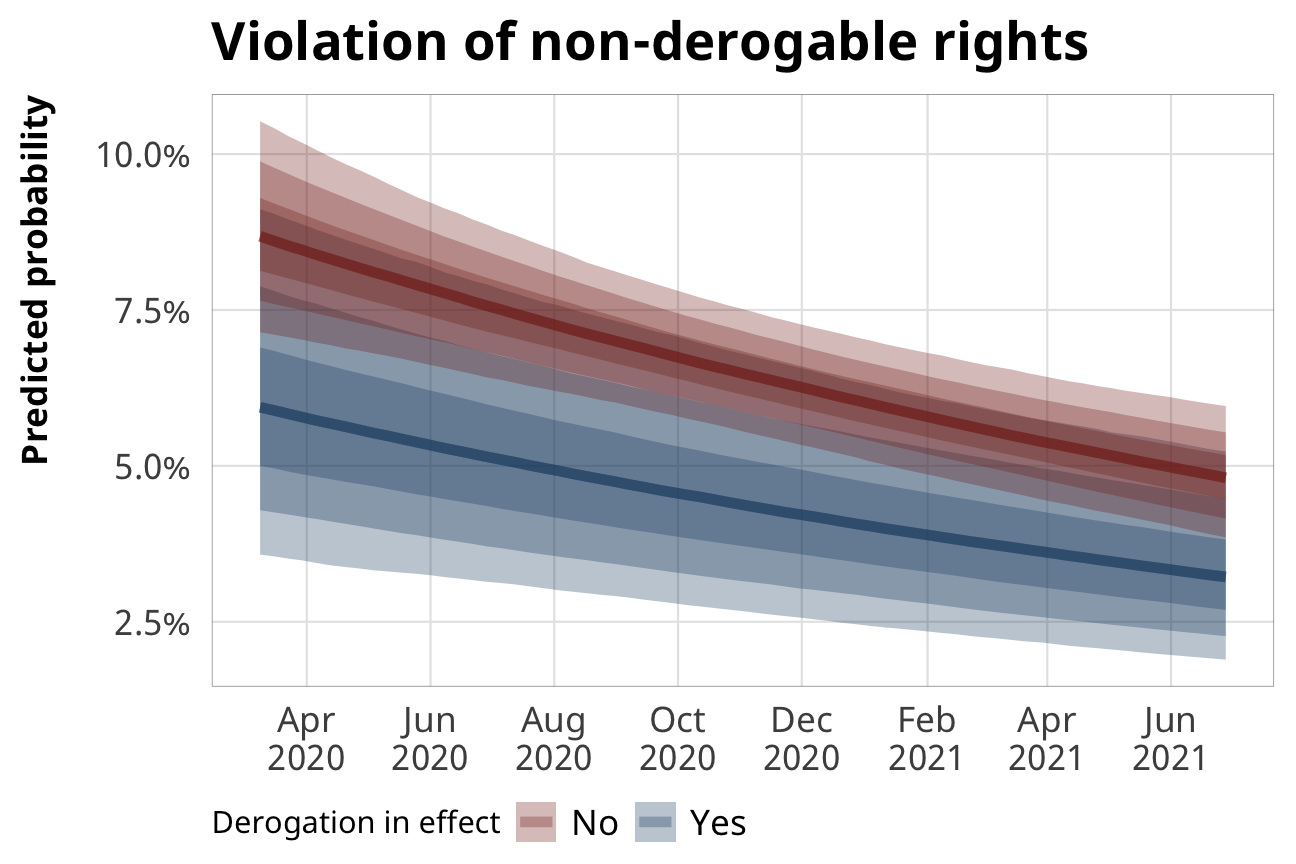
Pandemic Pass
Treaty Derogations and
Human Rights Practices During COVID-19
Lewis and Clark College
Arizona State University
Georgia State University
November 4, 2022
Question
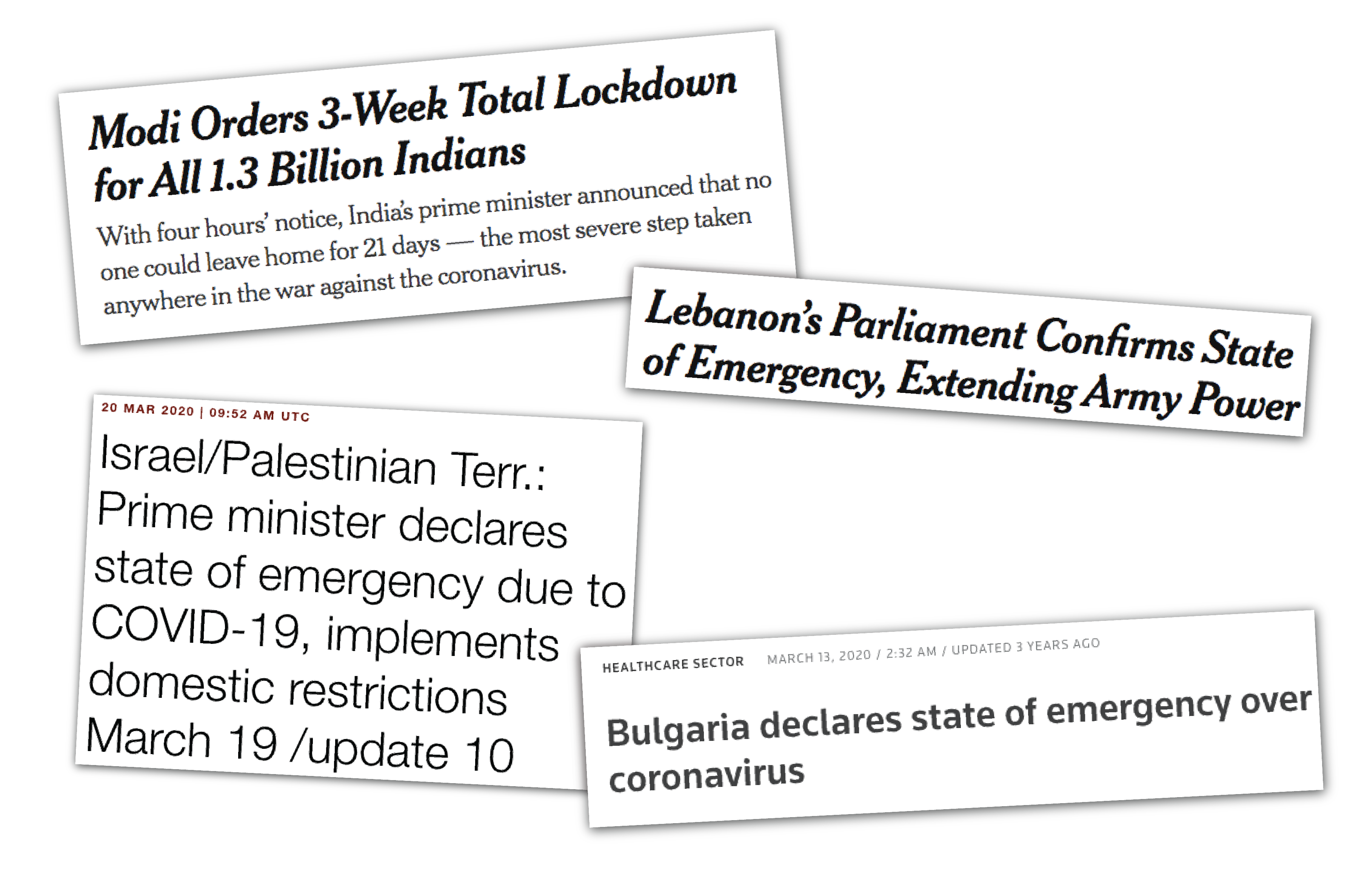
Emergencies and international law
Derogations
Provisions in international law that authorize states to temporarily suspend treaty obligations
Many states do not formally derogate and just implement emergency measures
ICCPR derogations during COVID-19
| Type of response | N |
|---|---|
| Derogated as intended | 13 |
| Derogated; measures not temporary, proportional, or necessary | 5 |
| Emergency declared; no formal derogation | 74 |
| No emergency; no formal derogation | 28 |
| Has not ratified ICCPR | 8 |
Research questions
- Were derogating states less likely to abuse human rights as they implemented emergency measures for COVID-19?
- Can civil society organizations (CSOs) mitigate the adverse effects of these emergency measures?
Preview of findings
Derogating states are less likely to abuse emergency measures, have discriminatory policies, violate non-derogable rights, and impose measures without time limits
Permissive civil society environment increases likelihood of debt relief policies
Civil society repression increases the probability of abusive enforcement and discriminatory policies; derogations mitigate that probability
Significance
International law and human rights
International treaty provisions designed to safeguard rights may end up worsening conditions when there is a lack of review from the international community
Democratic erosion and human rights
Emergencies are important for understanding the processes of autocratization and democratic backsliding
Theory and hypotheses
UN requirements for public health emergency measures
Suspensions of rights must be:
- Legal
- Necessary
- Proportional
- Non-discriminatory
Derogations during COVID-19
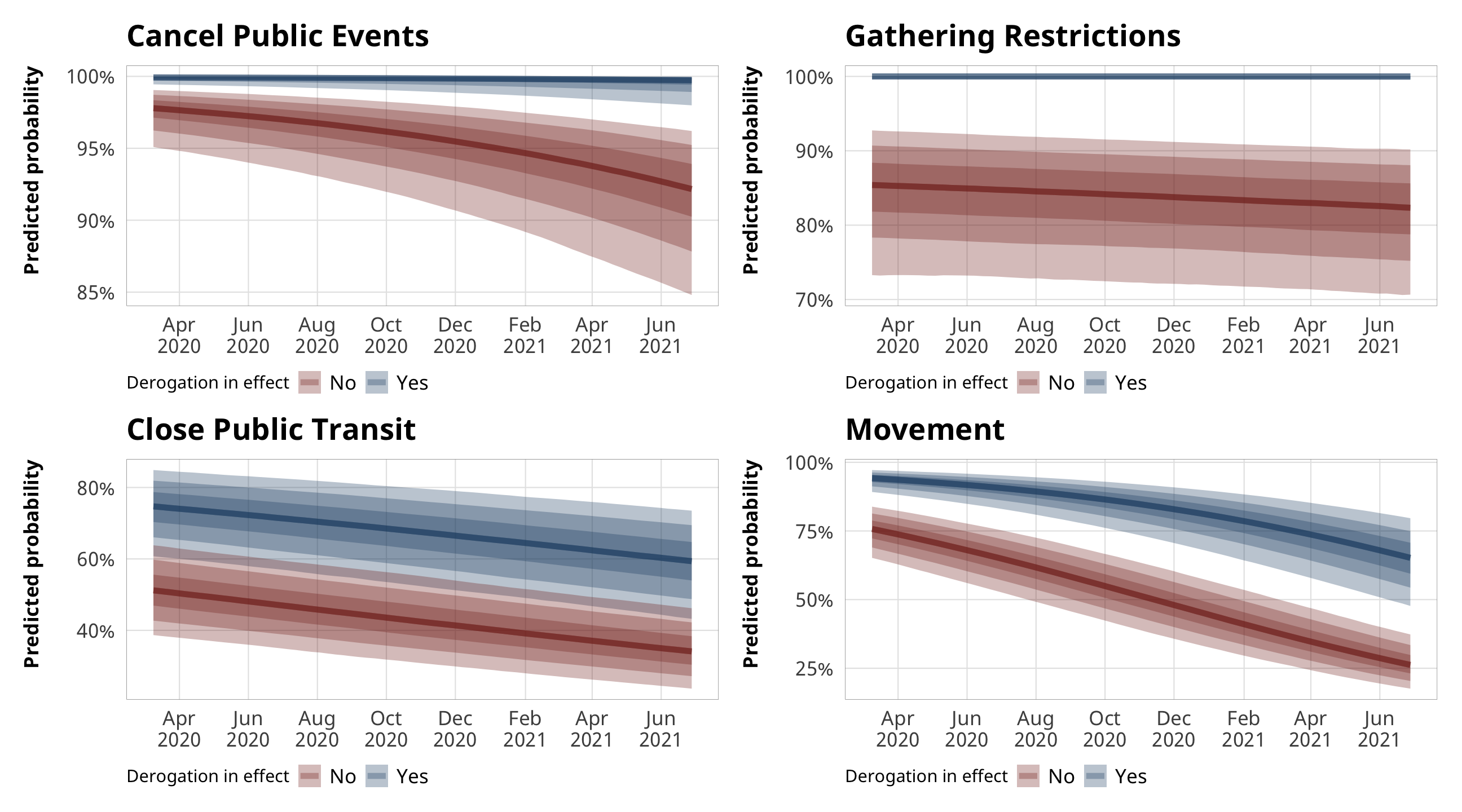
Pandemic as excuse
If states implement emergency measures without regard for international law, the implementation may be problematic and the process to restore rights may not be followed
- Restrictions on travel or movement by minority or opposition groups
- Limits on public assembly and protests
- Deployment of surveillance systems that impede privacy
H1: Derogations & human rights
If states formally derogate from international treaty provisions, then they are less likely to:
- Use discriminatory policy measures
- Violate non-derogable rights
- Impose measures with no time limits
Civil society and human rights
Civil society helps mitigate the impact of crises, emergencies, and natural disasters
During COVID-19, civil society:
- Broadened range of voices in policymaking process
- Pursued civic initiatives to deal with impact of economic shutdown, product shortages, and spikes in unemployment
- Assisted with public health initiatives

H2: Civil society & supportive policies
If civil society organizations are involved in the policy making process, then states are more likely to have supportive economic policies
Pandemic as excuse
Some states used emergency measures as an excuse to limit democratic participation, dissent, and challenges to economic and political rule
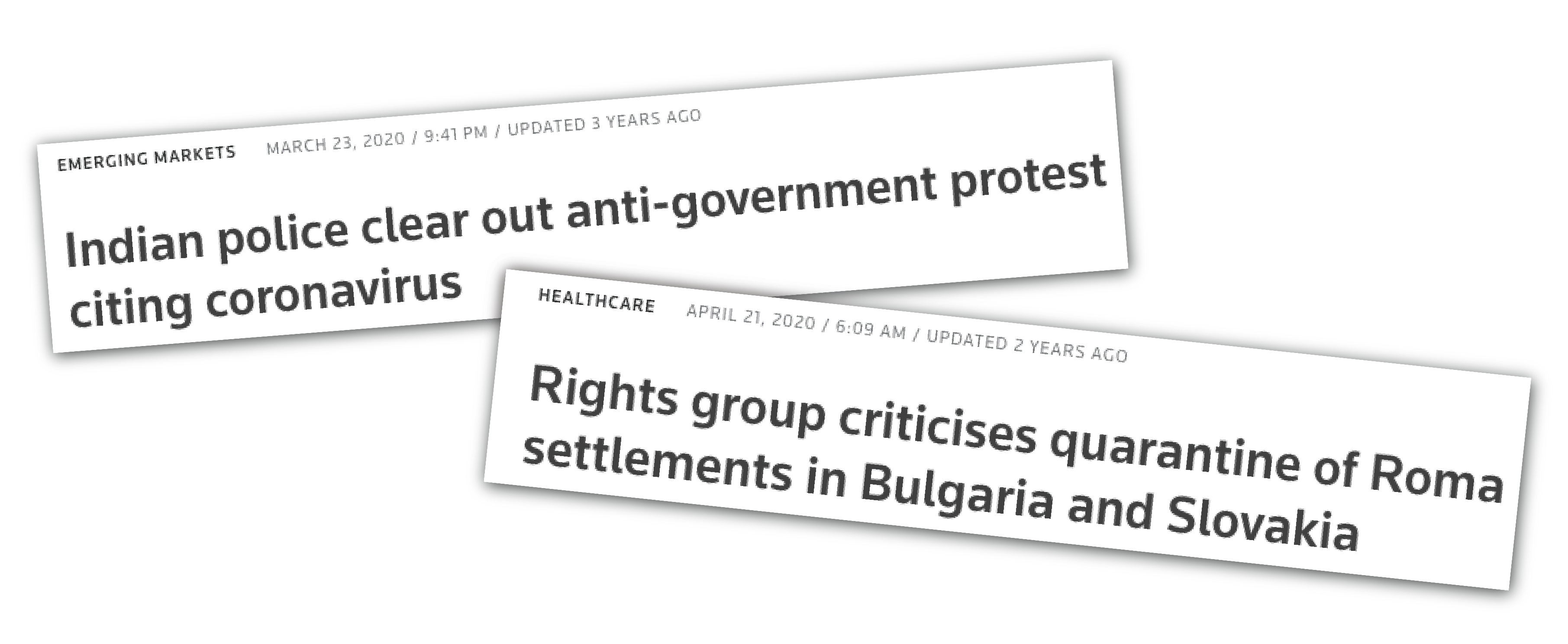
Civil society repression
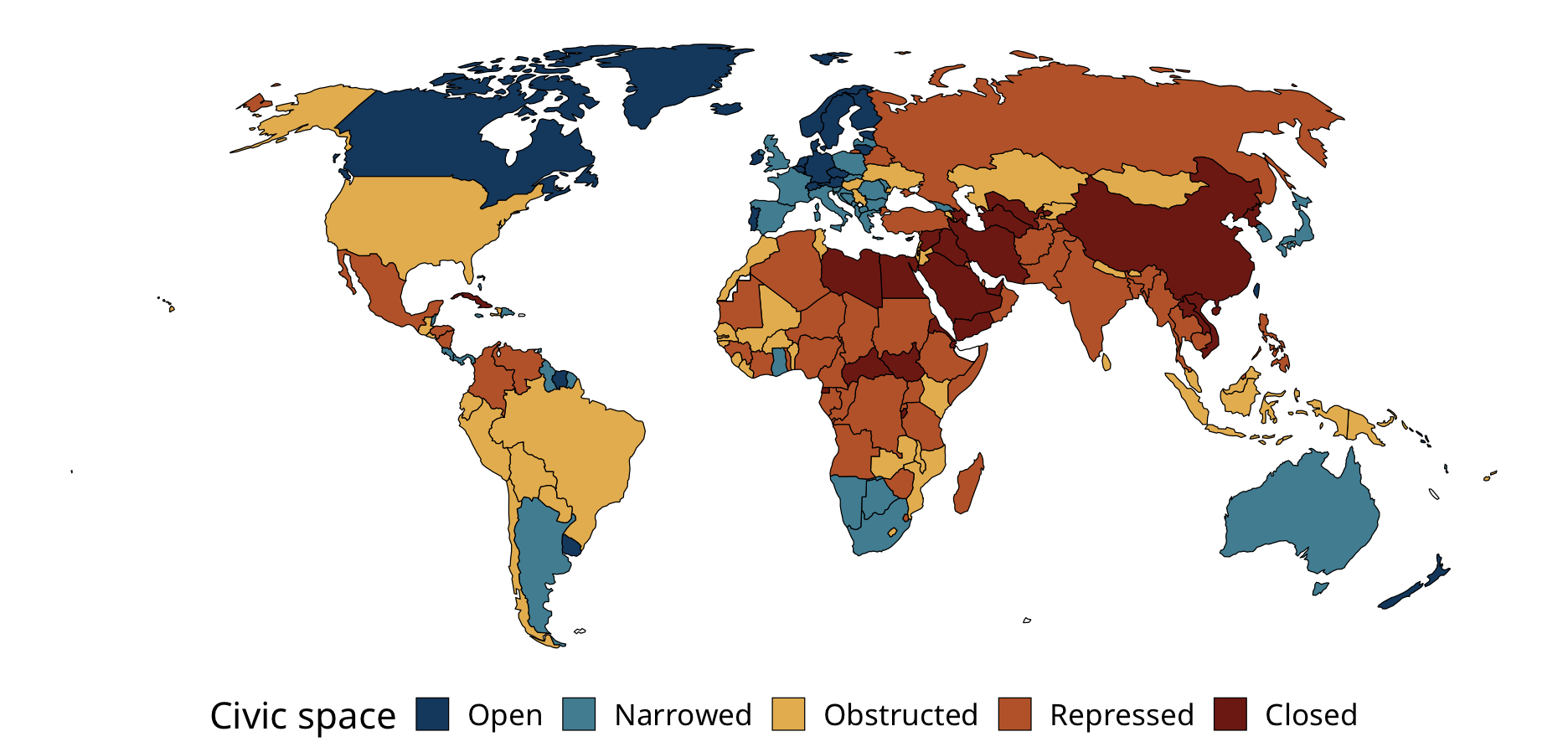
2020 CIVICUS Monitor civic space ratings
H3: Civil society & human rights
If states are repressive towards civil society organizations, then they are more likely to:
- Violate non-derogable rights
- Use discriminatory policy measures
- Engage in abusive enforcement of emergency measures
- Impose limits on media freedom
Data and results
Data
- Hand-coded derogations from the ICCPR
- Oxford’s COVID-19 Government Response Tracker
- V-Dem’s Pandemic Backsliding Project
- WHO’s case and death counts
Daily data for 139 countries from March 11, 2020 to June 30, 2021
Modeling approach
Outcomes
- Discriminatory policies (H1, H3)
- Violation of non-derogable rights (H1, H3)
- Abusive enforcement (H1, H3)
- Measures without time limits (H1)
- Limiting media (H3)
- Income support (H2)
- Debt relief (H2)
Explanatory variables
- Derogation in effect
- Civil society repression
- Core civil society index
Other controls
- COVID case counts
- COVID death counts
- Rule of law index
- Civil liberties index
Modeling approach
Bayesian multilevel models with country random effects and weekly time trend
(Logistic models for binary outcomes; ordered logistic models for outcomes with multiple categories)
Open to other ideas too!
H1: Derogations and human rights
Substantial 2–3 percentage point difference in probability of violating non-derogable rights (P[∆ < 0] = 0.964)
H1: Derogations & human rights
Substantial ≈22 percentage point difference in probability of having time-limited measures (P[∆ ≠ 0] = 1)
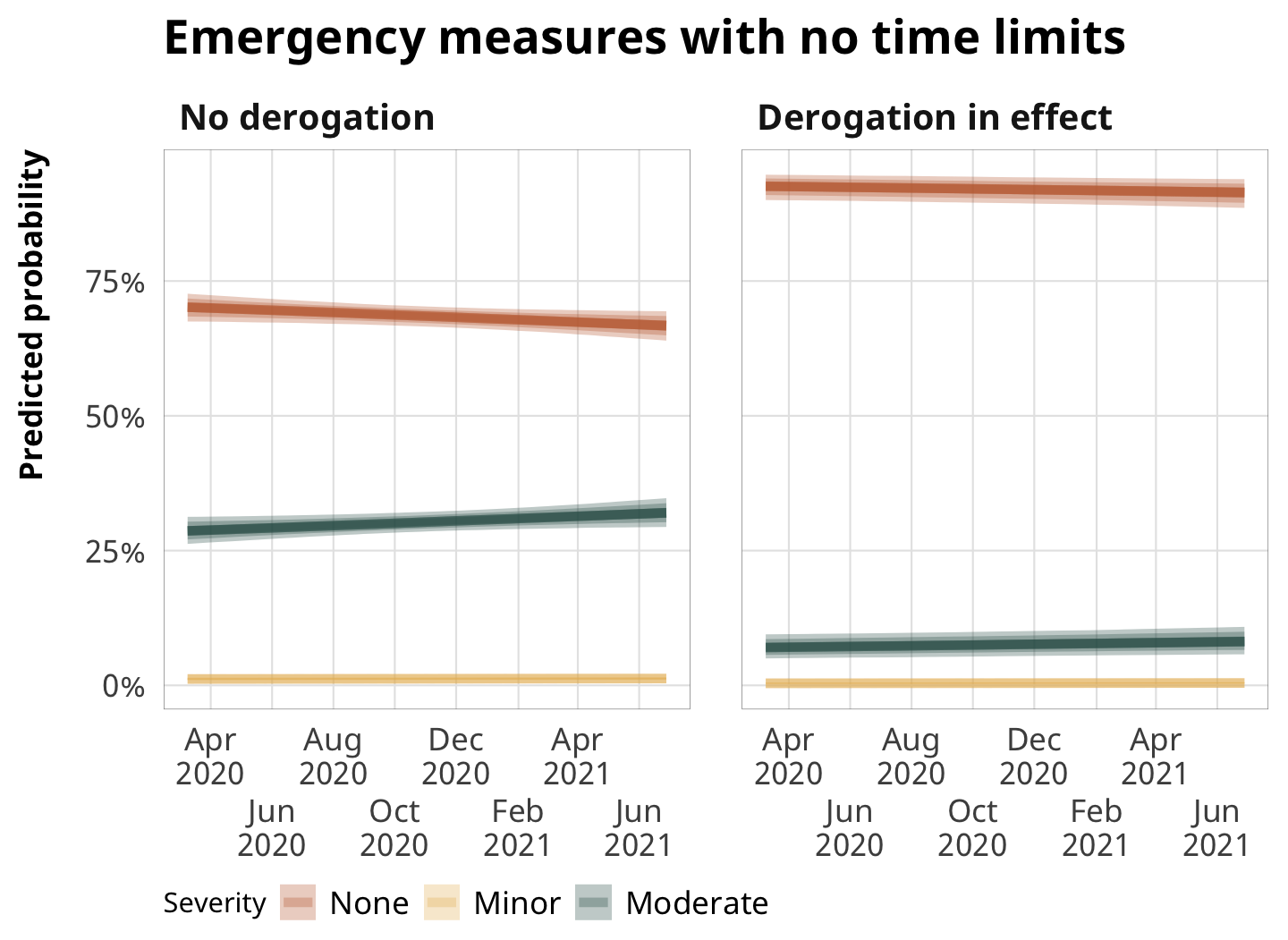
H1: Derogations & human rights
Null results
No derogation-based difference in predicted probability of having discriminatory policies or abusive enforcement.
H2: Civil society & supportive policies
Both derogation status and civil society strength substantially increase the probability of a state providing COVID-related debt relief
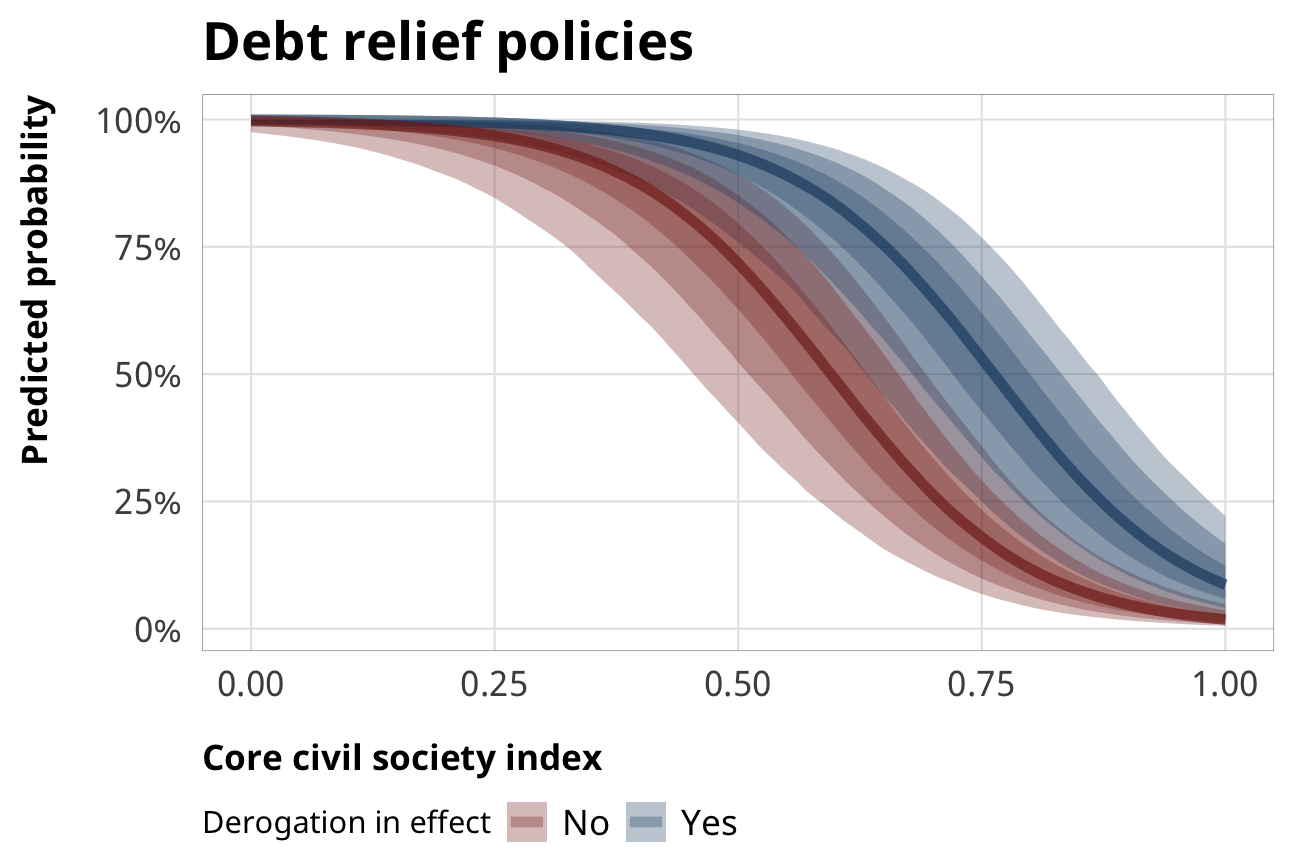
H3: Civil society & human rights
Substantial difference in probability of implementing discriminatory policies across all levels of civil society repression (P[∆ ≠ 0] = 1) for states that derogated
Better civil society associated with less discriminatory policy in derogating states
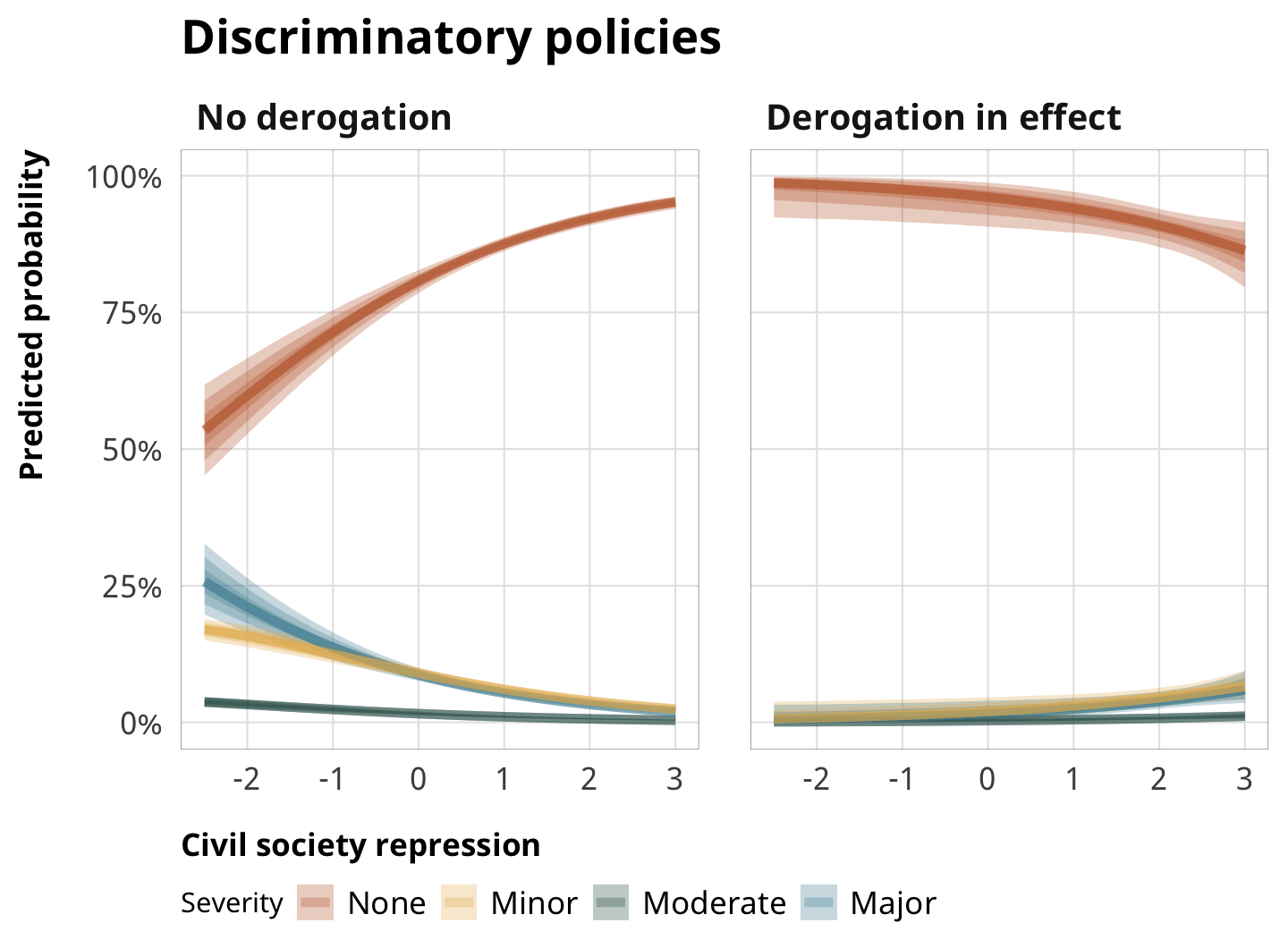
H3: Civil society & human rights
Substantial difference in probability of abusive enforcement of emergency measures for countries with worse civil society repression in derogating states
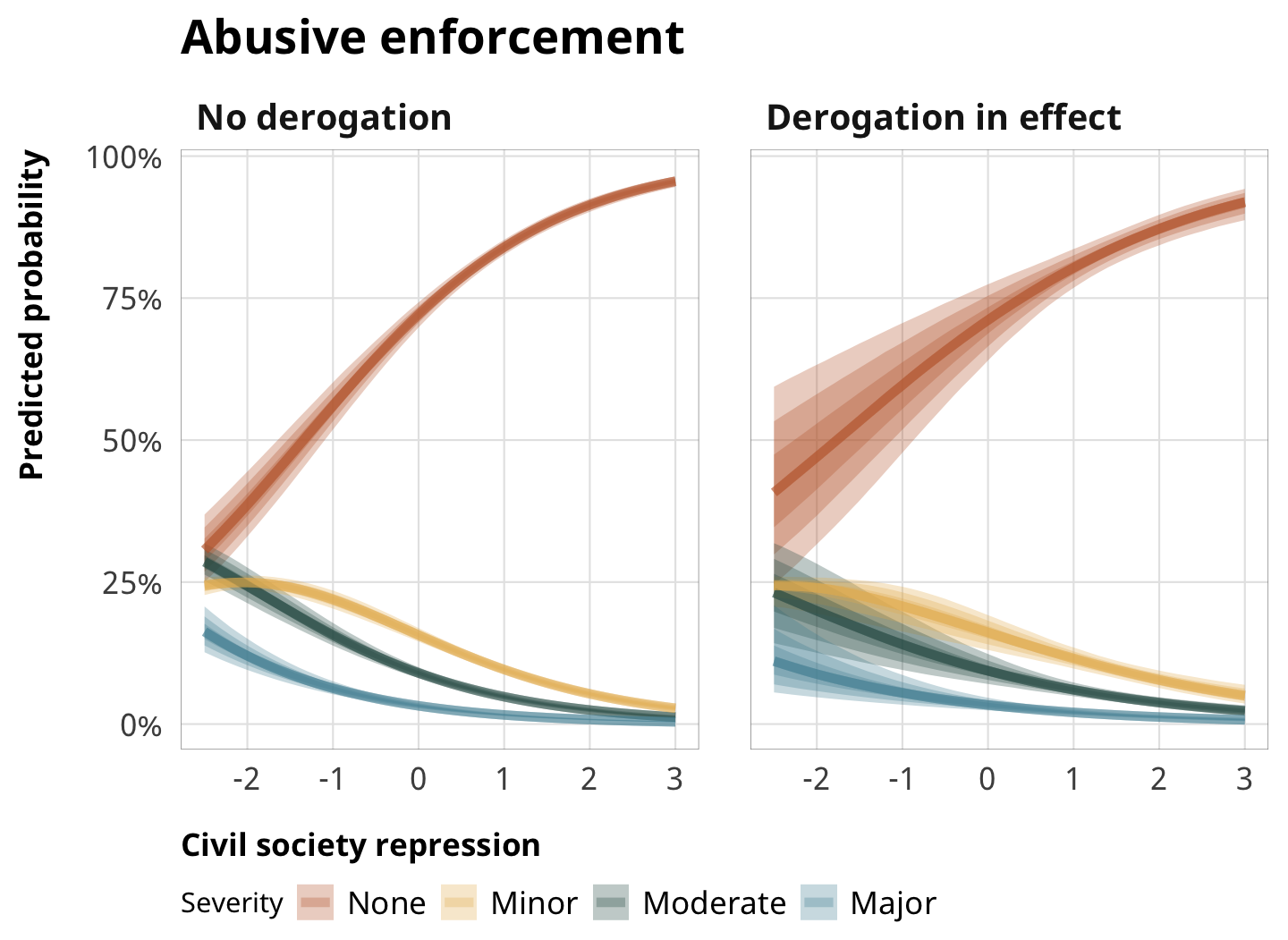
H3: Civil society & human rights
Null results
No derogation-based difference in predicted probability of violating non-derogable rights or limiting media across range of civil society repression
Discussion
Summary
Derogating states are less likely to abuse emergency measures, have discriminatory policies, violate non-derogable rights, and impose measures without time limits
Civil society repression increases the probability of abusive enforcement and discriminatory policies; derogations mitigate that probability
Permissive civil society environment increases likelihood of debt relief policies
Broader implications
Derogations are meant to provide states with flexibility during crises and to encourage them to sign and ratify treaties
Some states use derogations as intended; others use them as an excuse to violate rights
Understanding how states treat derogations is important for understanding declining respect for human rights and democratic backsliding
Chaudhry, Comstock, and Heiss | Pandemic Pass